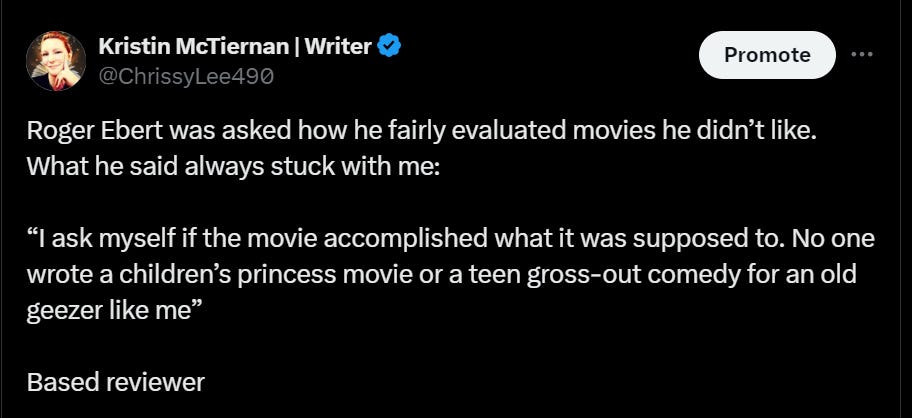Being “nonsense-free” has its drawbacks, the most notable of which is that sometimes it loses you business.
Last week I made a tweet about present tense writing. Specifically that I hated it.
I needed some feedback for video research. I don’t like present tense and I wanted to hear from my followers how they liked it. It was a mixed bag and I’m glad I asked.
However… I didn’t think about how that would land with my clients.
I am at this moment editing a (very good) present-tense novel and have another one lined up in the next few weeks. Or at least I did.
The present-tense author I was supposed to work with canceled. I can only assume she saw the tweet and decided to go with someone else. That was disappointing.
I found myself in the odd position of wanting to say: “Just because I hate your style of writing (as a reader) doesn’t mean I shouldn’t edit your book.”
To be fair, it’s better for ME if I absolutely love your book. Though it may not be better for you.
You see, if I love your book, a lot of times I’ll get sucked into reading it. I’ll miss things. I’ll overlook errors instead of writing you a lengthy note in the margins. I might even miss a plot hole. “Who cares? This FMC who reminds me of myself ends up with the hot guy! 10/10 great book!”
My job is to pick apart your book, and I do my best work, frankly, if there are at least a few things I don’t like about what you’ve written.
Your editor is there to make sure your book accomplishes its mission. Are you following genre conventions in a way that your target audience will appreciate? When you subvert a trope, are you doing it in a clever way that will make your reader gasp or nod in approval?
Have you chosen the best point of view and writing tense for your genre and audience? How about plot structure and character elements?
The fact that I, personally, despise indecisive female characters in romance novels is irrelevant. What matters, and what I will assess in your book, is if your target audience will resonate with your FMC’s feelings of being pulled in two different directions by her job/family/friend group and the man she loves.
There are so many editors to choose from and it is tempting for an author to go with the one who will “like” your book the best. But I would advise against that.
Your beta and alpha readers should reflect your target audience.
Your editor should be skilled in assessing the elements of your book and have the ability to verbalize where it falls short and why.
So choose an editor who knows your genre inside and out.
They know the tropes and conventions (including average word count).
They know what kind of ending will make your audience hungry for more and what will make them write angry one-star reviews.
That’s what sets your editor apart from your alpha readers. It’s not about their own preferences. It’s about what will make your book a success.
**As a note, I book out about 2 months in advance, so if you’re getting close to needing an editor, feel free to reach out early




I have an acquaintance who wrote his memoir in present tense. He used multiple clichés, reused the same adjectives over and over and even the same sentences again and again. But, I couldn't put the book down. It was full of action, and left me wanting to know what comes next, as adventure led to adventure. Pondering what made the story so 'in the moment,' was that he wrote in the present tense. It made up for all the glaring blemishes. — Glenn